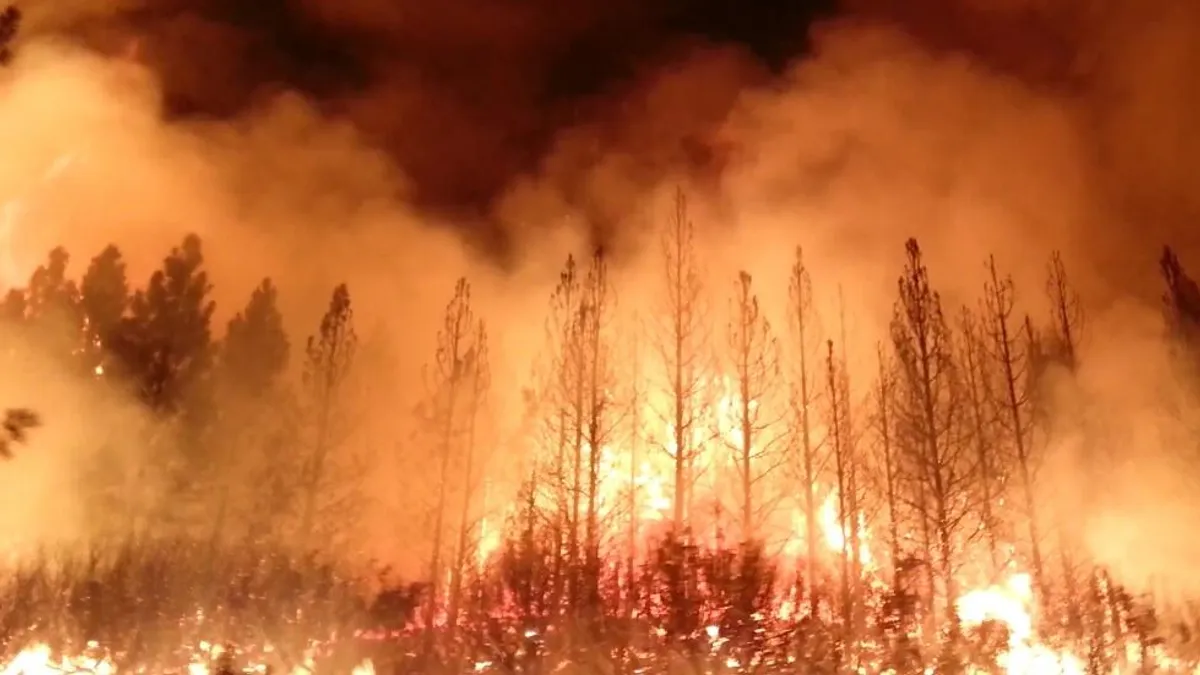Dive Brief:
- California is unlikely to change its inverse condemnation rules, despite the risks for utilities and impacts on the state's legislative and regulatory environment, in part because of negative perceptions of Pacific Gas & Electric, according to Moody's Investor Services.
- The ratings agency on April 3 issued a research note examining "credit-supportive fire risk solutions" for PG&E and other California utilities. A state catastrophe fund "appears to be the reform that is most likely to happen," Moody's concluded.
- While the issues impact all of the state's utilities, PG&E was forced to declare bankruptcy this year as it faces billions in liabilities related to the deadly fires. On Wednesday, the utility announced sweeping management changes, including a new CEO and 10 new board members.
Dive Insight:
California is struggling to find solutions that balance utility liability and risk against the need for certainty and financial stability, Moody's notes. And sentiment surrounding the state's largest utility is so negative that some ideas are largely non-starters.
"Eliminating or changing the way inverse condemnation is applied in California is unlikely in the near future due to legal precedent and political challenges," Moody's wrote.
Such a change could be done through a constitutional amendment or a new interpretation by the state's judicial system. But Moody's said both of those routes "are unlikely in the near future, in part because of the negative public sentiment" toward PG&E.
Changes to inverse condemnation would also be opposed by the state's insurance industry and attorneys representing wildfire victims, the firm said.
"California's application of inverse condemnation effectively turns the state's investor-owned and publicly owned electric utilities into an insurance backstop," Moody's Vice President Jeff Cassella said in a statement. "When wildfires occur now, investors face significant uncertainty regarding the ability of utilities to recover related costs in a timely manner."
California's interpretation of inverse condemnation holds utilities accountable for wildfires caused by their equipment, even if a company is not found negligent. In February, PG&E determined it would take a $10.5 billion pre-tax charge related to third-party claims in connection with the 2018 Camp Fire, concluding its equipment was likely the cause of the deadly blaze.
But according to Moody's, the state could design "other statutory protections that assure full and contemporaneous cost recovery could mitigate most wildfire risk." The idea for a state catastrophe fund has been floated, and could provide liquidity for utilities, said Moody's, while securitization financing would offer a partial solution, helping to lower financing costs of wildfire-related liabilities.
The exact mechanism of a catastrophe fund and who would finance it are unclear, but related legislation sees electric utilities paying into it, the San Francisco Chronicle reported last month.
Regulatory "safe harbor provisions" could ensure automatic cost recovery and provide utilities with the greatest assurances, Moody's said, "provided the utilities operate according to wildfire mitigation plans that are pre-approved by regulators." But legislation to implement them is "unlikely," Moody's said.
The California Public Utilities Commission is reviewing updated fire mitigation plans, which are expected to be approved in May. The plans are being developed to implement SB 901, a 2018 law passed to address wildfire risk which added new requirements to utilities' fire plans.
While PG&E has proposed a number of steps to minimize the risk of wildfires, a new regulatory report on the safety culture at the utility concluded it has made improvements but "continues to have a reactive, rather than proactive approach to potential issues."
The utility, in a statement to Utility Dive, said it was pleased by the findings that PG&E has made significant improvements but also agreed "that we have more work to do in our support of public, employee and contractor safety, which is our most important responsibility."














